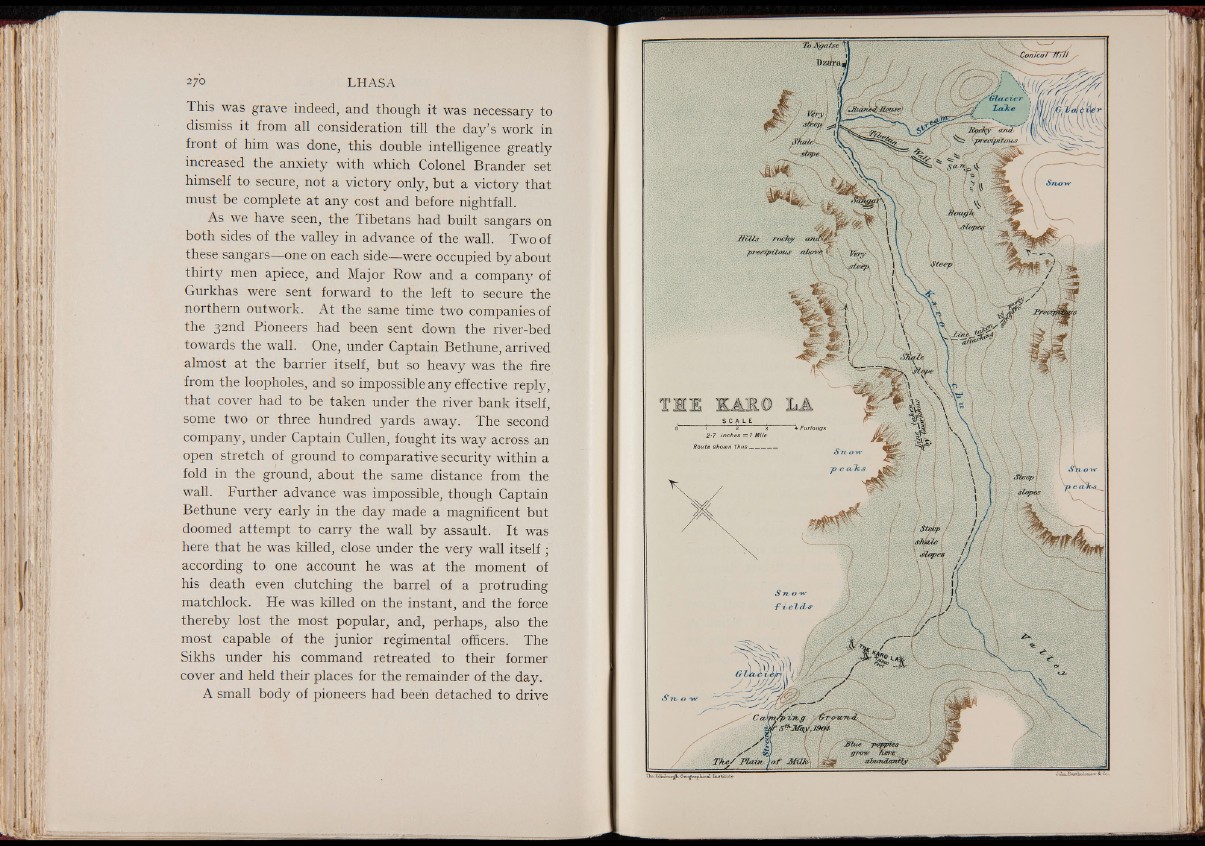
This was grave indeed, and though it was necessary to
dismiss it from all consideration till the day’s work in
front of him was done, this double intelligence greatly
increased the anxiety with which Colonel Brander set
himself to secure, not a victory only, but a victory that
must be complete at any cost and before nightfall.
As we have seen, the Tibetans had built sangars on
both sides of the valley in advance of the wall. Two of
these sangars— one on each side— were occupied by about
thirty men apiece, and Major Row and a company of
Gurkhas were sent forward to the left to secure the
northern outwork. At the same time two companies of
the 32nd Pioneers had been sent down the river-bed
towards the wall. One, under Captain Bethune, arrived
almost at the barrier itself, but so heavy was the fire
from the loopholes, and so impossible any effective reply,
that cover had to be taken under the river bank itself,
some two or three hundred yards away. The second
company, under Captain Cullen, fought its way across an
open stretch of ground to comparative security within a
fold in the ground, about the same distance from the
wall. Further advance was impossible, though Captain
Bethune very early in the day made a magnificent but
doomed attempt to carry the wall by assault. It was
here that he was killed, close under the very wall itself ;
according to one account he was at the moment of
his death even clutching the barrel of a protruding
matchlock. He was killed on the instant, and the force
thereby lost the most popular, and, perhaps, also the
most capable of the junior regimental officers. The
Sikhs under his command retreated to their former
cover and held their places for the remainder of the day.
A small body of pioneers had been detached to drive